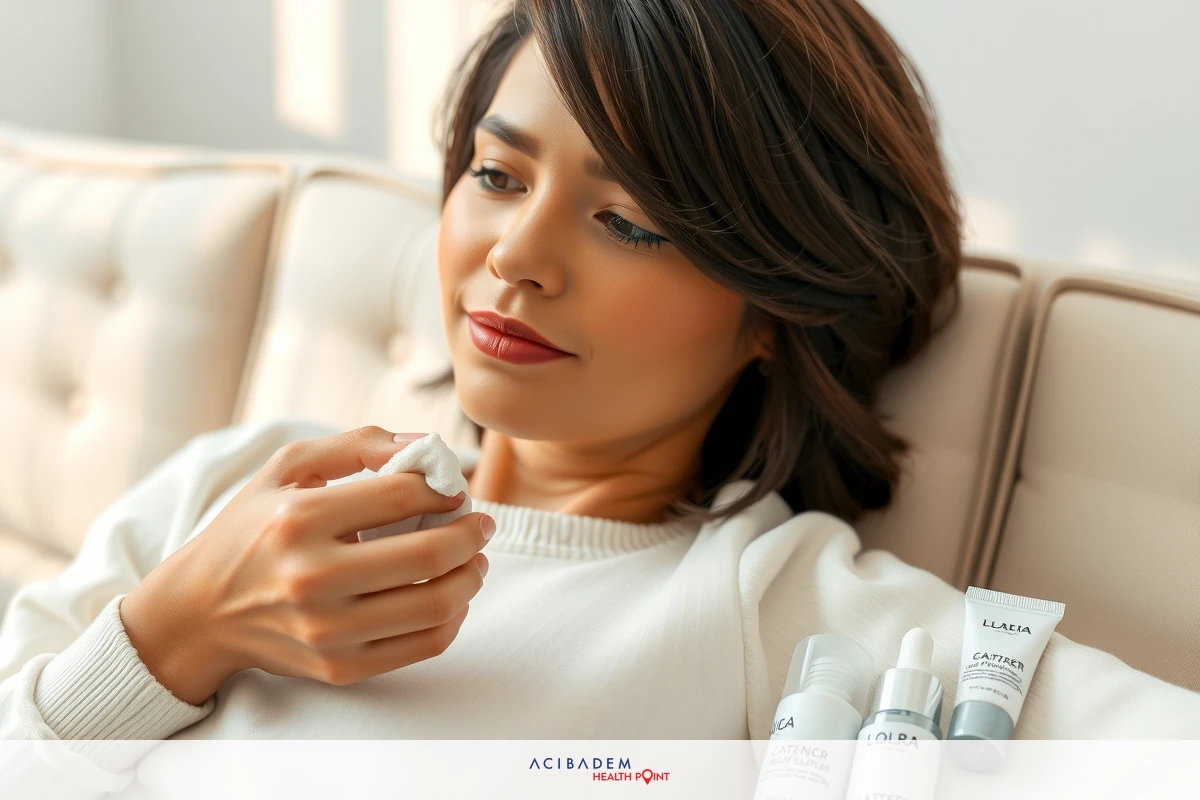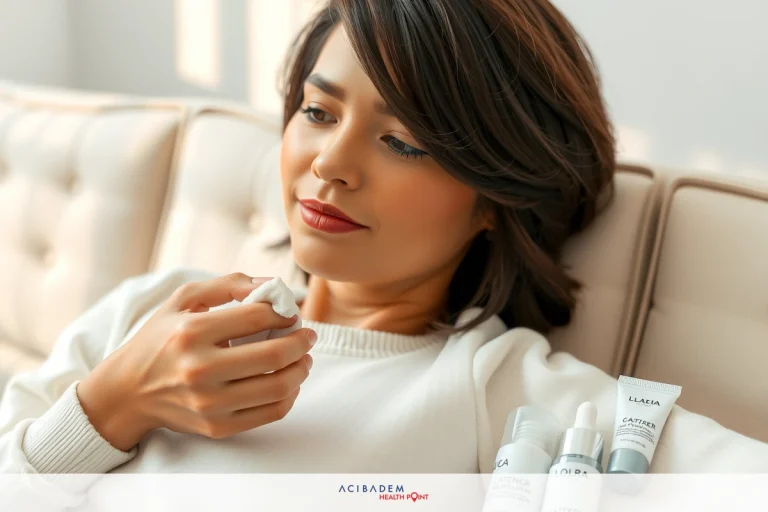How Long After Rhinoplasty Can I Wash My Face?
How Long After Rhinoplasty Can I Wash My Face? Rhinoplasty, commonly called a nose job, involves reshaping the nasal bone and cartilage to enhance facial harmony. Post-operative care is an aspect that patients should not overlook to ensure a smooth recovery process. One common query they have pertains to face washing – when can it be resumed?
The healing period following rhinoplasty requires delicate aftercare practices with specific instructions on maintaining facial hygiene without disrupting the surgical site. Though seemingly simple, washing your face post-rhinoplasty isn’t straightforward as it’s crucial not to disturb the area whilst keeping it clean.
Understanding these guidelines helps in preventing complications like infection or unnecessary pressure on the nose which could affect its new structure. Therefore, this write-up focuses on providing clear guidance for those seeking answers about safely resuming their daily skincare routine post-surgery.
When Can I Start Washing My Face?
After rhinoplasty, the recovery process takes precedence over usual routines. The surgical site is delicate, and disturbing it could potentially lead to complications that might affect the healing process. As such, washing your face post-rhinoplasty isn’t as straightforward as it seems. However, maintaining hygiene is critical too – so when exactly can one resume this daily routine?
In general terms, most surgeons recommend waiting for at least one week after surgery before you wash your face gently with a mild cleanser. This timeframe allows initial swelling to subside slightly and provides sufficient time for incisions to start their healing journey prior to any potential disturbance they may encounter during cleansing.
Though this recommendation serves as a guidepost, remember that individual recovery varies greatly based on personal health factors and the exact nature of the procedure undergone. Overlying these variations are instructions from the surgeon tailored specifically to each patient’s situation – these should be followed conscientiously above all else.
It’s crucial not only to seek professional advice but also understand why certain guidelines exist in post-operative care following rhinoplasty. Delaying facial washing
helps prevent unnecessary strain or pressure on sensitive nasal tissues still recovering from an invasive procedure. Moreover, avoiding premature contact with water prevents potential infection risk associated with exposing fresh wounds too soon.
As days pass by in your recovery phase after rhinoplasty, you will notice gradual improvements permitting more regular washing patterns slowly returning into play like pre-surgery times; however patience remains key here! Listen attentively and adhere strictly not only to recommendations regarding when you can wash your face again but also how best to do so without disrupting ongoing tissue repair and regeneration processes.
So while eager anticipation mounts about resuming everyday activities like face washing following rhinoplasty surgery caution must be exercised until given clear green lights signalling safety ahead!
How Should I Wash My Face?
Upon receiving the go-ahead to wash your face after rhinoplasty, it’s important to consider how this task should be undertaken. The post-operative period demands a gentle approach towards facial cleansing to prevent any accidental harm or discomfort at the surgical site.

Here are some key steps and suggestions for safely washing your face during recovery from rhinoplasty:
- Always clean your hands first: Before touching your face, ensure that you have thoroughly cleaned your hands with soap and water. This reduces the chances of introducing bacteria onto your skin.
- Use a mild cleanser: Opt for gentle, fragrance-free cleansers instead of harsh soaps or products containing exfoliants or acids which could irritate sensitive skin in the healing phase.
- Avoid direct contact with the nose: When cleansing, carefully maneuver around the nasal area being mindful not to apply pressure or cause unnecessary movement.
- Pat dry, don’t rub: Use a soft towel to gently pat your face dry instead of rubbing vigorously as this may inadvertently exert pressure on delicate post operative tissues.
- Moisturize with care: If advised by your surgeon, lightly apply hypoallergenic moisturizer avoiding direct application on incisions until they’re completely healed.
- Do not use hot water: While washing or rinsing off cleanser avoid using excessively hot water as it can cause increased swelling; lukewarm is best!
These guidelines aim at ensuring that while maintaining facial hygiene during recovery from rhinoplasty you remain careful about keeping any potential disturbances within check – remember always consult with medical professionals regarding specific personal queries related to post-surgical self-care!
Can I Use Skincare Products on My Face?
Navigating the world of skincare post-rhinoplasty can be a delicate journey. During recovery, your skin may react differently to products that were part of your pre operative routine. Hence, it is crucial to understand which skincare items are safe and beneficial during this healing phase.
In the initial days following rhinoplasty, priority should be given to keeping the area clean and minimally disturbed. As such, refrain from applying anything other than prescribed ointments or creams directly onto incisions until they have fully healed. Concurrently, when selecting facial cleansers or moisturizers for use elsewhere on your face, opt for those labelled ‘gentle’, ‘fragrance-free’ or for ‘sensitive skin’. These tend to contain fewer irritants which could exacerbate any temporary sensitivity experienced post-surgery.
As your healing progresses and inflammation subsides significantly – usually around two weeks after surgery – you might feel inclined towards reintroducing more elements into your skincare regimen. However caution remains paramount even then! Be watchful about potential reactions: redness, itching or unusual breakouts signal that a product may not be compatible with your current state of convalescence.
Sunscreen plays an essential role in post-rhinoplasty skincare too considering heightened sun sensitivity often associated with surgical procedures like these. Once permitted by healthcare providers ensure regular application especially while stepping outdoors; remember though select non-comedogenic formulations offering broad spectrum protection without clogging pores!
Makeup users must tread carefully as well; whilst cosmetics offer tempting solutions covering up residual bruising/swelling their introduction should only occur upon
clearance received from surgeons affirming incisional healing completion thereby avoiding infection risks.
The rule-of-thumb here centers essentially around simplicity and gentleness; straying far from elaborate routines featuring numerous products reduces chances of unexpected reactions ensuring smoother sailing through recovery waters following rhinoplasty surgery!
Frequently Asked Questions
How soon after rhinoplasty can I shower?
You should wait for at least 24 to 48 hours post-surgery before taking a shower. When you do, avoid letting the water hit your face. It's best to consult with your surgeon for personalized advice
Can I use makeup to cover up bruising or swelling after my surgery?
While makeup might seem like an easy solution, it's crucial not to apply any on the surgical area until all incisions are fully healed. This typically takes about two weeks but varies depending on individual recovery rates and surgeons instructions.
What type of sunscreen is safe to use post-rhinoplasty?
Use a broad spectrum sunscreen that protects against both UVA and UVB rays without clogging pores (non-comedogenic). Remember always apply this when stepping out in daylight given heightened sun sensitivity following rhinoplasty.
Is it safe to use skincare products containing retinol during recovery from rhinoplasty?
Retinol can cause skin dryness and irritation which may not be ideal during healing from rhinoplasty. Refrain from using any potentially irritating ingredients unless approved by your healthcare provider.











